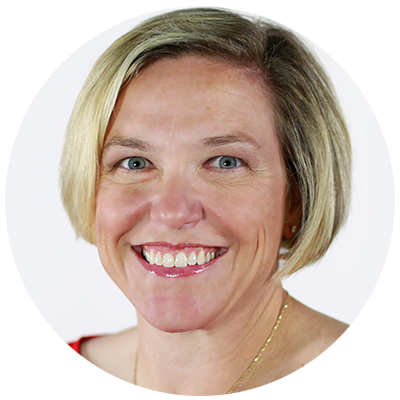

The Urban and Rural Initiative (URI) is committed to improving educational quality and access for underprivileged and underserved students and communities. URI’s main objective is to promote effective educational strategies that urban and rural school educators and leaders can use to improve the education for the underrepresented youth. We hope to combat marginalization in education by removing barriers, and helping to promote more inclusive and humanizing educational spaces.
Urban and Rural Initiative leverages knowledge and research, resources and opportunities, relationships and collaborations, and information and research, to improve equity, access and quality of education in urban and rural areas.
Center faculty and partners focus on three areas to improve urban and rural education:
- providing collaborative research opportunities for faculty and community or school/institutional partners,
- offering equity-based professional development opportunities for community or school/institutional partners, and
- sharing and translating research that will positively impact education.
Our Priority Areas and Guiding Principles set a framework for how URI faculty and affiliates will engage this work.
Our Mission
The Urban and Rural Initiative (URI) fosters research and professional practice that improves that education and lives of underserved students in urban and rural environments.
About
Our Team

Executive Director
Muhammad Khalifa is a professor of Educational Administration at The Ohio State University. His research examines how urban school leaders enact culturally responsive leadership and anti-oppressive schooling practices. His most recent book, Culturally Responsive School Leadership (Harvard Education Press, 2018), is widely used by scholars and practitioners alike. Dr. Khalifa has also recently published in the highest ranked education journals, including Review of Educational Research, Teachers College Record, QSE, Urban Review, Educational Administration Quarterly, and Race, Ethnicity, and Education, to name a few. In addition to his previous work as an urban educator in Detroit, he has worked with education ministers in Africa and Asia and has helped them craft educational goals and reforms.

Special Projects Manager
Christine Fagan, EdD serves as the Special Projects Manager for the EDGE office. She manages and oversees the BRIGHT program in coordination with the Fisher College of Business, the Urban and Rural Initiative, the Be The Change Module, and various other projects within the College of Education and Human Ecology. Christine spent several years as a middle school educator and her research interest revolves around Trauma-Informed Practices in school settings. She holds an EdD in Educational Administration from The Ohio State University, a MS in Curriculum and Instruction and BS in Middle Childhood Education both from Youngstown State University.
Collaborative Research
Conference on Urban Education (2023)
The Annual Conference on Urban Education is intended to bring a multidisciplinary research, scholarship, and engagement to improve the lives of youth and families in urban and rural communities. The conference has 3 keynote lectures, and 9 breakout sessions where impactful, accessible research is presented to practitioners, scholars, policymakers and other attendees. URI faculty from all three EHE Departments (Educational Studies, Human Sciences, and Teaching and Learning) collaborate on work to address youth, families, and communities in urban and rural contexts using developmental and lifespan approaches and with a foundational framework in the Socioecological Model.
Professional Development
URI constantly strives to bring impactful professional developments to school staff in urban and rural educational contexts. This year, we will start by offering the Cultural Responsive School Leadership Academy. In future years, we will continue to partner with school districts and CEHE faculty develop and partner with institutions to bring the best and most useful PD to districts. Here is an overview of our academy this year:
- Culturally Responsive School Leadership Academy
- URI has partnered with the Culturally Responsive School Leadership Institute (CRSLI) to offer academies to school, district, and organizational leaders. The 2.5-Day CRSLI Academy is offered to leaders on the OSU Main Campus in August of each year. The content in the academy covers the main practice-oriented aspects of culturally responsive school leadership, and uses policies, artifacts, practices, and data from participants schools, districts, or organizations. The Academy is meant for urban, suburban, and rural school and district leaders at every level, including, teacher-leaders, principals, district cabinets, superintendents, school boards, and diversity and inclusion administrators.
Priority Areas
- Education and Schools:
- Racial and economic inequity in urban education
- Educator pipeline and placement
- Access in higher education
- Culturally responsive educational practices
- Access to care and health and wellness outcomes
- Health disparities
- Families and Communities
- Poverty and inequity in the Global South
- Poverty and education access in rural communities
- Economic security, vitality, and safety
Guiding Principles
Centering Community
We Believe: schools have historically marginalized urban and rural community-based interests and understandings, but that these community knowledges are real, legitimate, and powerful and more relevant to students’ learning
We commit to: recentering community-based knowledge in education advocating for community-based goals, sending our students into communities to learn from them, and by establishing critical partnerships with non-corporate community members and groups.
Anti-Oppressiveness
We Believe: clear definitions and language of anti-oppressive education are needed; many types or practices of oppression are normalized and not known or easily identified by educators/leaders.
We commit to: upholding both anti-oppressive policy and practice, and to using data to identify and (measurably) confront oppression within organizations, workplace practices, curriculum, and language/discourse.
Empowering Minoritized Perspectives
We Believe: marginalized perspectives/voices in urban and rural communities have traditionally not been heard; ways of identifying and empowering minoritized perspectives must become institutional practice.
We commit to: Identifying the minoritized urban and rural communities and asking regularly about their perspectives; linking policy establishment and reform to minoritized perspectives and voices
Critical Self-Reflection
We Believe: every person and institutional actor within organizations must use institutional data to unearth or acknowledge ways they contribute to reproducing oppression personally or within organizations
We commit to: establish regular and systematic ways measuring the presence and comfort of minoritized perspectives, such as performing equity audits, climate surveys, and focus groups.
Equity in Systems and Organizations
We Believe: it is necessary to humanize organizations through culturally responsive leadership, teaching, professional development and evaluation; for wellbeing to occur, equitable ecology is around students and community
We commit to: developing policies, curriculums, trainings, evaluations, and practices that contribute to enhanced equity and cultural responsiveness; forging institutional relationships that improve equity

